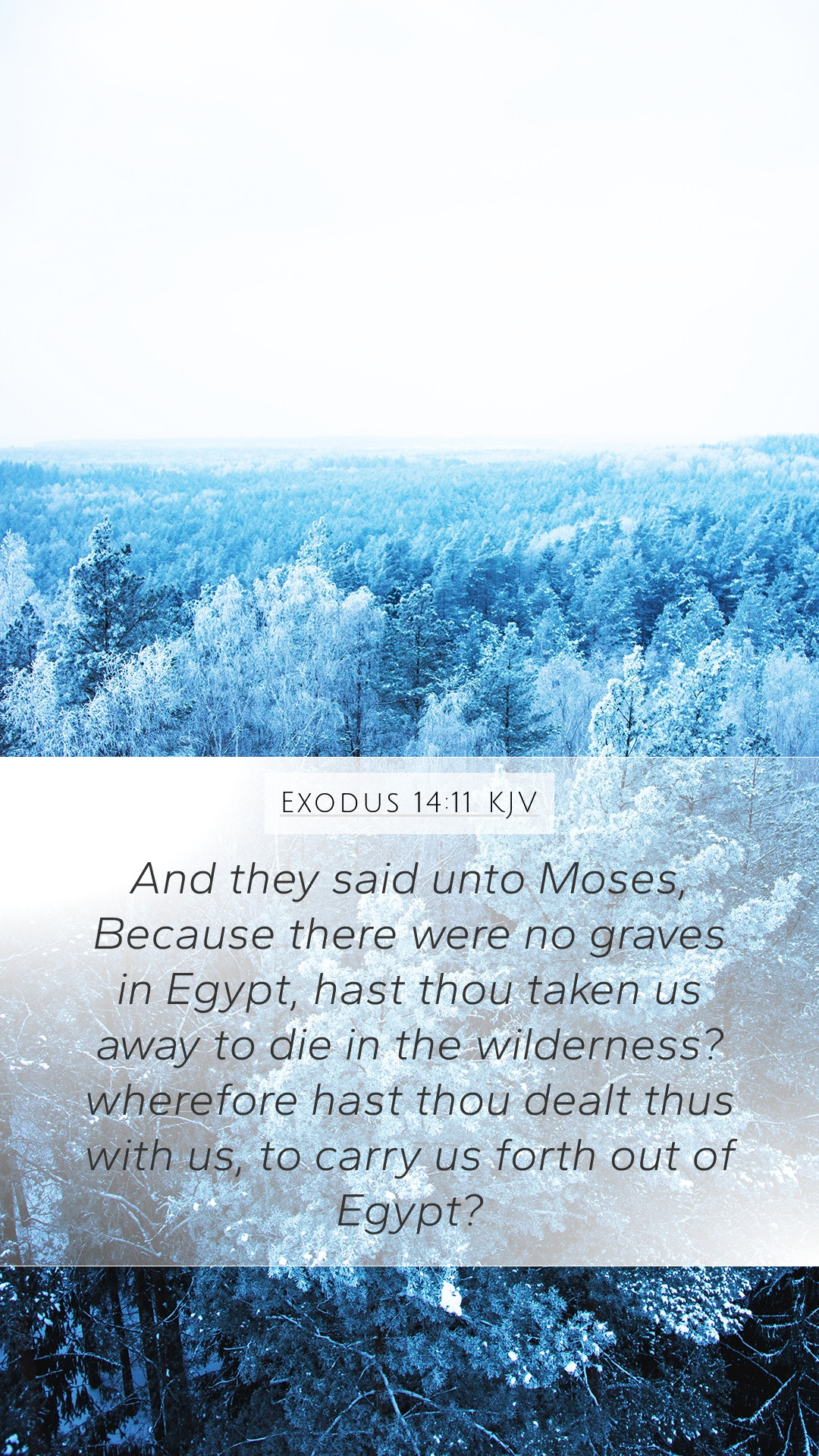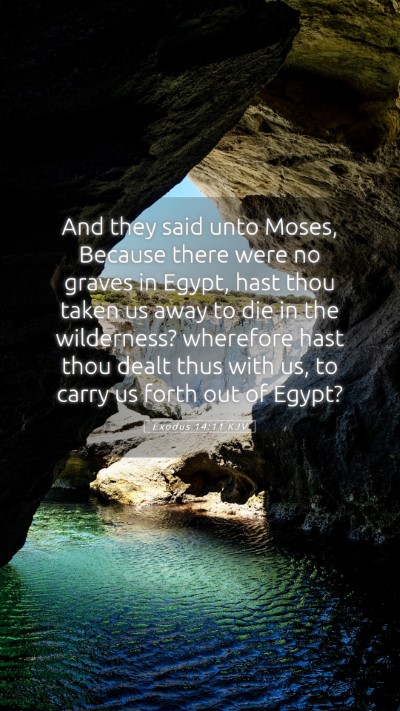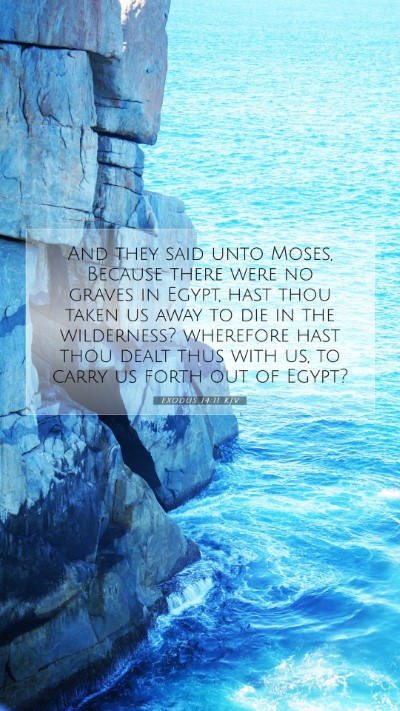Understanding Exodus 14:11
Exodus 14:11 is a pivotal verse that captures the fear and despair of the Israelites as they face the Red Sea, with Pharaoh's pursuing army behind them. This moment encapsulates themes of faith, doubt, and the struggle between reliance on God and human anxieties. Below is an in-depth analysis, incorporating insights from respected public domain commentaries.
Verse Text
"And they said unto Moses, Because there were no graves in Egypt, hast thou taken us away to die in the wilderness? wherefore hast thou dealt thus with us, to carry us forth out of Egypt?" (Exodus 14:11)
Contextual Understanding
The context of this verse highlights the Israelites' despair just before a miraculous act of salvation from God. They had witnessed the plagues in Egypt but still found themselves gripped by fear at the first sign of hardship. Their complaint reveals a lack of faith and an immediate focus on their current peril rather than on the deliverance promised by God.
Commentary Insights
-
Matthew Henry's Commentary
Henry emphasizes the irony in the Israelites' complaint about graves in Egypt. They had been slaves, yet they preferred the familiarity of bondage over the uncertainty of freedom. His analysis points to human tendencies to cling to the known, even when it involves suffering.
-
Albert Barnes' Notes
Barnes highlights the depth of their fear and resentment. He suggests that they underestimated God's power and presence. Their question to Moses reveals a lack of trust in his leadership and God's promise, illustrating how fear can cloud judgment and lead to rebellion against divine direction.
-
Adam Clarke's Commentary
Clarke draws attention to the metaphorical nature of their complaints. He explains that their question reflects not just a physical concern for survival but also a spiritual crisis. They were not only questioning Moses but also doubting God’s ability to protect and provide for them in their time of need.
Theological Implications
This verse raises critical theological questions regarding faith during trials. The Israelites' skepticism serves as a reminder of humanity’s propensity to doubt divine providence in difficult circumstances. Their outcry may resonate with many today, prompting reflections on how one responds to divine guidance amidst fear.
Practical Applications
Exodus 14:11 offers lessons on faith and trust. Here are some applications for modern believers:
- Trusting God in Uncertainty: Just like the Israelites, believers can struggle with trust when faced with trials. This verse encourages individuals to remember God's past faithfulness and to lean on His promises during challenging times.
- Communicating Doubts: The Israelites voiced their doubts and fears. This highlights the importance of expressing one's feelings and seeking spiritual guidance in times of distress rather than harboring resentment or doubt silently.
- Recognizing Patterns: Understanding the cycle of doubt and faithfulness can help believers navigate their spiritual journeys more effectively. Recognizing when fear takes hold allows for timely intervention through prayer and reflection.
Cross References
The following verses provide additional context and insight related to Exodus 14:11:
- Exodus 3:19-20 - God's forewarning of Pharaoh's resistance and the signs He would perform.
- Numbers 14:1-4 - The Israelites' continued rebellion in the wilderness.
- Psalm 106:7-12 - A reflection on Israel's lack of faith before God’s saving acts.
Conclusion
This deep dive into Exodus 14:11 reveals profound insights about human nature, faith under pressure, and the constant struggle to trust God's plan. The lament of the Israelites serves as both a caution and a source of empathy for those facing their own Red Seas. As you study this verse, consider your own moments of doubt and how God invites you to trust Him more fully.


